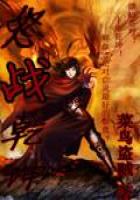It was the first time Lahoma had ever faced an audience larger than that composed of Brick and Bill and Willock,for in the city she had been content to play an unobtrusive part,listening to others,commenting inwardly.Speech was now but a mode of action,and in her effort to turn the sentiment of the mob,she sought not for words but emotions.Bill's life was at stake.What could she say to make them Bill's friends?After her uplifted hand had brought tense silence,she stood at a loss,her eyes big with the appeal her tongue refused to utter.
The mob was awed by that light in her eyes,by the crimson in her cheeks,by her beauty,freshness and grace.They would not proceed to violence while she stood there facing them.Her power she recognized,but she understood it was that of physical presence.When she was gone,her influence would depart.They knew Brick and Bill had sheltered her from her tenderest years,they admired her fidelity.Whatever she might say to try to move their hearts would come from a sense of gratitude and would be received in tolerant silence.The more guilty the highwayman,the more commendable her loyalty.But it would not change their purpose;as if waiting for a storm to pass,they stood stolid and close-mouthed,slightly bent forward,unresisting,but unmoved.
I'm a western girl,Lahoma said at last,and ever since Brick Willock gave me a home when I had none,I've lived right over yonder at the foot of the mountains.I was there when the cattlemen came,before the Indians had given up this country;and I was here when the first settlers moved in,and when the soldiers drove them out.I was living in the cove with Brick Willock when people came up from Texas and planted miles and miles of wheat;and I used to play with the rusty plows and machinery they left scattered about--after the three years'drought had starved them back to their homes.Then Old Man Walker came to Red River,sent his cowboys to drive us out of the cove,and your sheriff led the bunch.And it was Brick and myself that stood them off with our guns,our backs to the wall and our powder dry,and we never saw Mizzoo in our cove again.So you see,I ought to be able to talk to western men in a way they can appreciate,and if there's anybody here that's not a western man--he couldn't understand our style,anyhow--he'd better go where he's needed,for out West you need only western men--like Brick Willock,for instance.
At reference to the well-known incident of Mizzoo's attempt to drive Willock from the cove,there was a sudden wave of laughter,none the less hearty because Mizzoo's face had flushed and his mouth had opened sheepishly.But at the recurrence of Willock's name,the crowd grew serious.They felt the justice of her claim that out West only western men were needed;they excused her for thinking Brick a model type;but let any one else hold him up before them as a model!...
Lahoma's manner changed;it grew deeper and more forceful:
Men,I want to talk to you about this case--will you be the jury?Consider what kind of man swore out that warrant against Brick--the leader of a band of highwaymen!And who's his chief witness?You don't know Mr.Gledware.I do.You've heard he's a rich and influential citizen in the East.That's true.But I'm going to tell you something to show what he IS--and what Brick Willock is;just one thing;that's all I'll say about the character of either.As to Red Kimball,you don't have to be told.I'm not going to talk about the general features of the case--as to whether Brick was ever a highwayman or not;as to whether he killed Red's brother to save me and my stepfather,or did it in cold blood;as to whether he held up the stage or not.These things you've discussed;you've formed opinions about them.I want to tell you something you haven't heard.Will you listen?
At first no one spoke.Then from the crowd came a measured impartial voice:We got lots of time.
She was not discouraged by the intimation in the tone that all her speaking was in vain.Several in the crowd looked reproachfully at him who had responded,feeling that Lahoma deserved more consideration;but in the main,the men nodded grim approval.They had plenty of time--but at the end of it,Bill would either tell all he knew,or....
Lahoma plunged into the midst of her narrative:
One evening Brick came on a deserted mover's wagon;he'd traveled all day with nothing to eat or drink,and he got into the wagon to escape the blistering sun.In there,he found a dead woman,stretched on her pallet.He had a great curiosity to see her face,so he began lifting the cloth that covered her.He saw a pearl and onyx pin at her throat.It looked like one his mother used to wear.So he dropped the cloth and never looked at her face.She had died the evening before,and he knew she wouldn't have wanted any one to see her THEN.And he dug a grave in the sand,though she was nothing to him,and buried her--never seeing her face--and covered the spot with a great pyramid of stones,and prayed for her little girl--I was her little girl--the Indians had carried me away.You'll say that was a little thing;that anybody would have buried the poor helpless body.Maybe so.But about not looking at her face--well,I don't know;it WAS a little thing,of course,but somehow it just seems to show that Brick Willock wasn't little--had something great in his soul,you know.Seems to show that he couldn't have been a common murderer.It's something you'll have to feel for yourselves,nobody could explain it so you'd see,if you don't understand already.
The men stared at her,somewhat bewildered,saying nothing.In some breasts,a sense of something delicate,not to be defined,was stirred.















